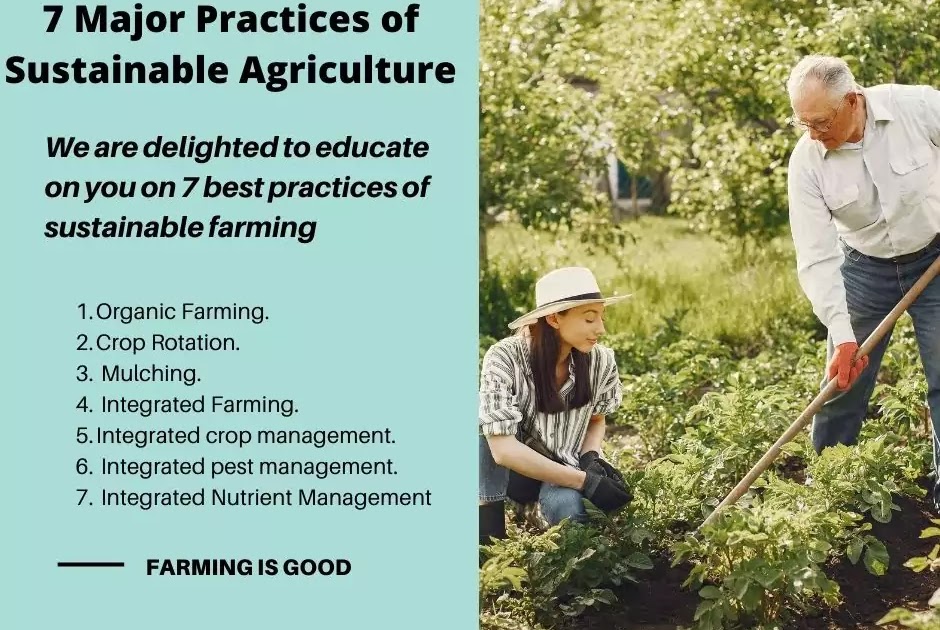
Sustainable Agriculture: Promoting a Better Future
Introduction
Sustainable agriculture is a concept that emphasizes farming practices promoting long-term environmental, economic, and social well-being. This article explores the historical background, key concepts, main discussion points, case studies, current trends, challenges, and future outlook of sustainable agriculture.
Historical Background
Sustainable agriculture has a rich history dating back centuries, originating from indigenous and traditional farming practices that worked harmoniously with nature. Over time, it has incorporated modern scientific knowledge, technological advancements, and innovative approaches.
Key Concepts and Definitions
Sustainable agriculture is a holistic approach aiming to meet present and future needs while ensuring environmental, economic, and social sustainability. It is guided by principles such as conserving natural resources, protecting biodiversity, enhancing soil health, and promoting social equity. Concepts like agroecology, organic farming, and regenerative agriculture play crucial roles by emphasizing ecological relationships, reducing chemical inputs, and restoring soil fertility.
Main Discussion Points
Importance of soil health in sustainable agriculture
Soil health is fundamental to successful agricultural systems, providing essential nutrients and water to crops. Sustainable agriculture focuses on implementing soil conservation and management techniques to prevent erosion, improve soil structure, and enhance nutrient cycling. Practices like cover cropping, crop rotation, and organic matter incorporation promote healthy soils that support productivity and resilience.

The role of biodiversity in sustainable agriculture
Biodiversity enhances ecosystem stability, pollination, natural pest control, and nutrient cycling. Sustainable farmers promote biodiversity through practices like companion planting and crop rotation, creating diverse habitats for beneficial organisms, reducing pest pressures, and improving overall farm resilience.
Water management strategies in sustainable agriculture
Water scarcity poses challenges to agriculture, making water management crucial. Sustainable agriculture emphasizes efficient water use through techniques like drip irrigation, precision agriculture, and rainwater harvesting. Water conservation methods like soil moisture monitoring and proper drainage systems optimize water usage without compromising crop productivity.
Case Studies or Examples
Successful sustainable agriculture projects and initiatives have made a positive impact worldwide. The “MasAgro” project in Mexico promotes sustainable practices among small-scale farmers, resulting in increased yields and improved livelihoods. The “SRI” method (System of Rice Intensification) has enabled farmers to improve rice production while reducing water usage and chemical inputs.
Current Trends or Developments
Sustainable agriculture continues to evolve with the adoption of precision agriculture technologies, enabling data-driven decisions for efficient resource management. Agroforestry, vertical farming, and aquaponics are innovative approaches being explored for sustainable farming.

Challenges or Controversies
Farmers face challenges in adopting sustainable agriculture practices, including limited access to resources and information, high initial costs, and resistance to change. Controversies surrounding genetically modified organisms (GMOs) have sparked debates within the sustainable agriculture community.
Future Outlook
As the global population grows, sustainable farming methods will be crucial to ensure food security. Emerging technologies like vertical farming and precision agriculture are expected to enhance productivity while minimizing environmental impacts.
Conclusion
Sustainable agriculture is vital for addressing the environmental, economic, and social challenges of today’s world. By prioritizing soil health, biodiversity conservation, and water management, farmers can contribute to a better future. Continued advancements in sustainable farming practices, supported by research and collaboration, will pave the way for a more sustainable and resilient agricultural system.
References
Smith, P., et al. (2013). Agriculture, Forestry and Other Land Use (AFOLU). In Climate Change 2014: Mitigation of Climate Change. IPCC.
Pretty, J. (2008). Agricultural sustainability: concepts, principles, and evidence. Philosophical Transactions of the Royal Society B: Biological Sciences, 363(1491), 447-465.
Altieri, M. A., & Nicholls, C. I. (2020). Agroecology as a science, a movement, and a practice. Agroecology and Sustainable Food Systems, 44(1), 1-4.
Vanlauwe, B., Descheemaeker, K., Giller, K. E., & Huising, J. (2015). Integrated soil fertility management in sub-Saharan Africa: unravelling local adaptation. SOIL, 1(1), 491-508.




